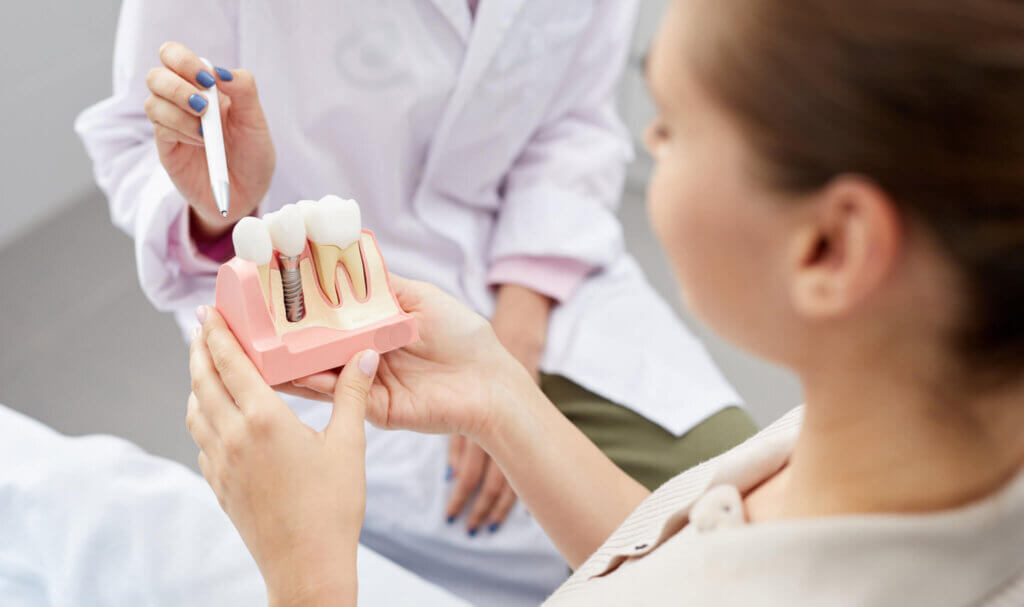As we grow older, our teeth can be a source of headaches, confidence issues and, in some cases, pain. You may experience things such as crooked teeth and toothache regularly, leading you to make a drastic choice – wanting to get your teeth removed.
Before you dive straight into replacement, take a moment to consider all the other options that are available to you for crooked, missing and painful structure. Today, we will be looking at the options available to you in this situation.
Can I repair them instead?
Your dentist will usually offer the option of repairing damaged or decaying before moving onto tooth removal and implants. In this case, treatments such as dental fillings can be implemented to preserve the majority of the natural tooth. Dental fillings simply address the decaying/abnormal parts of your teeth rather than replace the tooth entirely.
When is tooth removal the only option?
On the other hand, there are scenarios in which tooth extraction is the best and only option. All of your teeth could be removed if they are in really bad condition and if maintaining dental hygiene is a long-term issue for you. However, in these circumstances, you never really see an extraction of every single tooth but rather a small collection of those most in need of removal.
Below are all the usual reasons people have for turning to tooth removal and replacement:
- Periodontal disease affecting tooth mobility
- Sever jawbone loss affecting tooth mobility
- Vertically fractured teeth
- Horizontally cracked teeth
- Accidents that cause fractures, intrusions and bone fracture
- Severely poor oral hygiene
- Bruxism and occlusal wear
Teeth Removal Option #1: Dentures
Dentures are the first option available to you. These are gum-coloured acrylic bases that hold a full set of prosthetic teeth. They are held in place using natural suction and denture adhesive. It takes a few months to make a set of dentures as impressions need to be taken of your existing teeth. You will then go through temporary dentures whilst your permanent dentures are being made.
The benefits of traditional dentures are the low initial cost when compared to implants. Although it has to be made clear that long-term costs can pile up due to adjustments and denture replacements. Dentures also do not require any invasive treatment and are a good option for those with an aversion to any level of surgery. And finally, with modern advancements, dentures fit more comfortably and better than ever.
It isn’t the most modern option and thus has a few drawbacks. Dentures do not actually mimic the full function of natural teeth. It is difficult to chew food with dentures as they move around; this will limit the type and amount of food you can eat.
Furthermore, dentures require a lot of maintenance as they need to be removed and cleaned every single night. Yet another detrimental side-effect is dentures causing your gums to shrink as they are no longer holding any teeth. As the gums recede, you will see a ‘sag’ seeping into your skin and facial appearance.
Dentures are very old school but for those who aren’t fans of implants but don’t want bare gums, dentures are the only real alternative.
Teeth Removal Option #2: Dental Implants
Dental implants are the most popular and preferred choice for replacing missing, crooked or damaged teeth. Dental implant treatment stops the erosion of your gums by giving it artificial teeth to hold its shape. This is as a result of dental implants being placed into the jaw and fusing with the bone. Dental implants directly replace your natural teeth allowing your gums to stay in shape.
With dental implants, you can have all of your teeth replaced. There is also the option of having a few teeth removed and replaced with implants, and then topping that off with an ‘over denture’. ‘Over Dentures’ are permanent dentures that work alongside implants and are growing in popularity. This option is also more affordable than individually replacing every single tooth.
Always seek advice
Losing your teeth is scary for anyone so don’t be afraid to ask an expert.
Before you make any big decisions, it doesn’t hurt to speak to your dentist. Not only can they give you advice about how to take better care of your teeth, they can explain these options to you in even more detail because they can personalise it to your smile.


